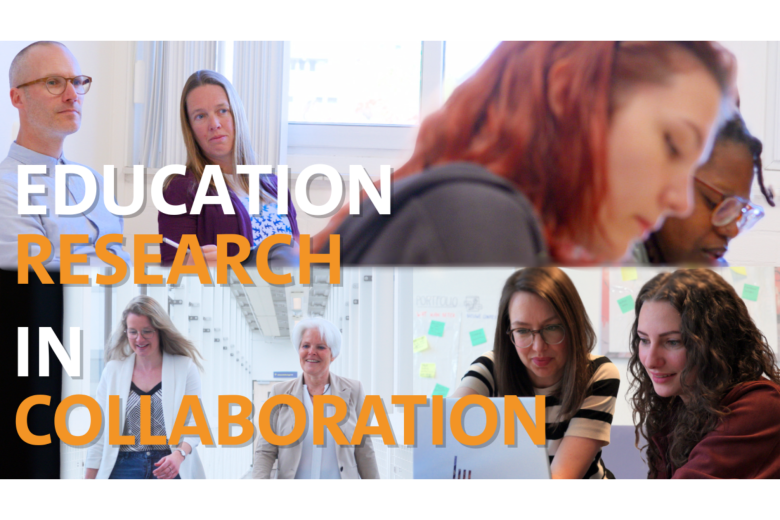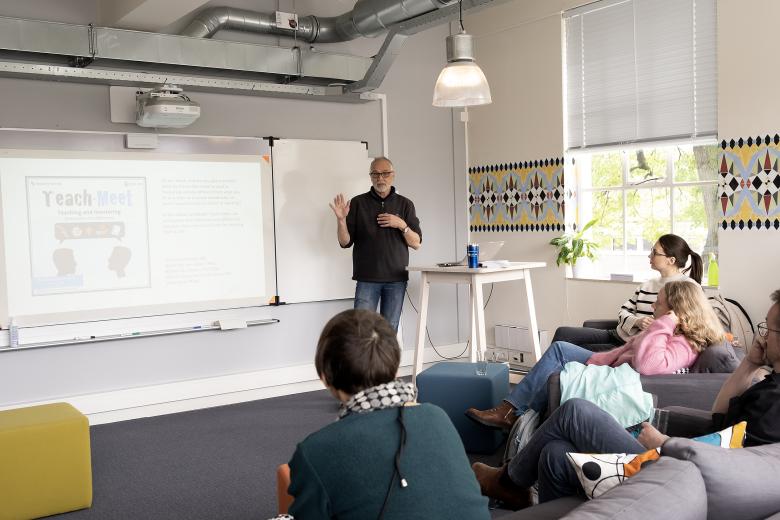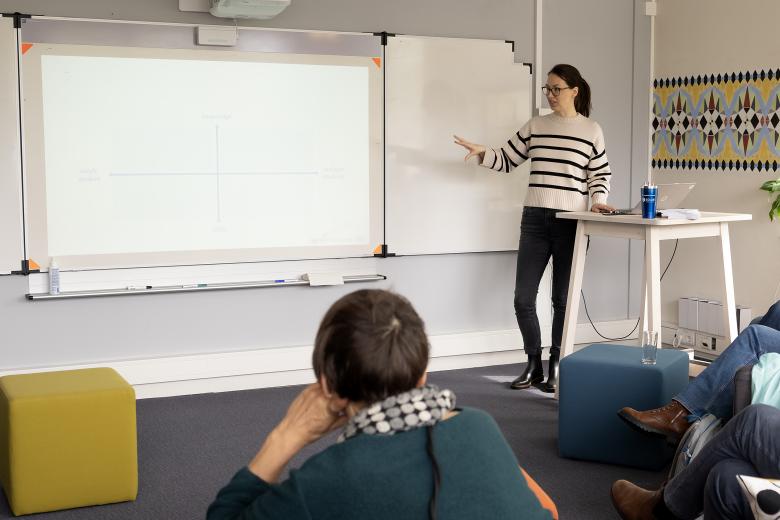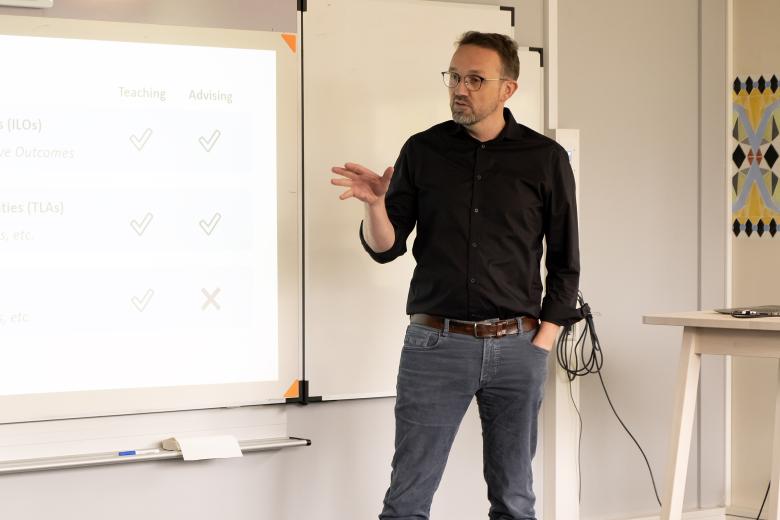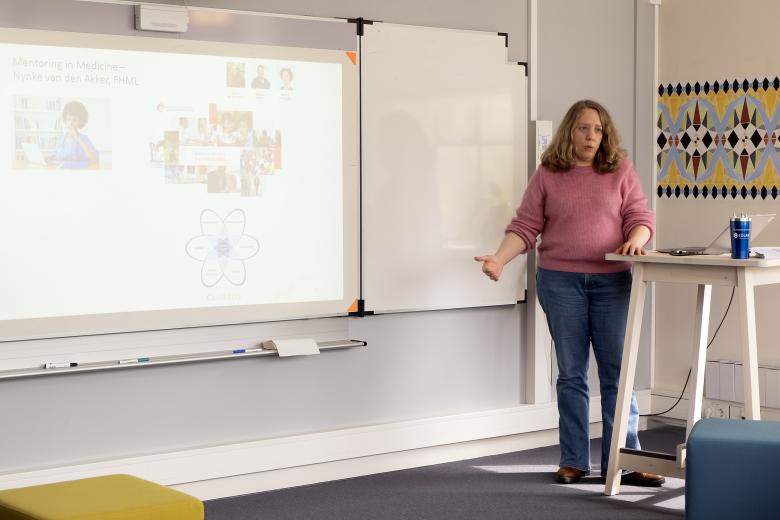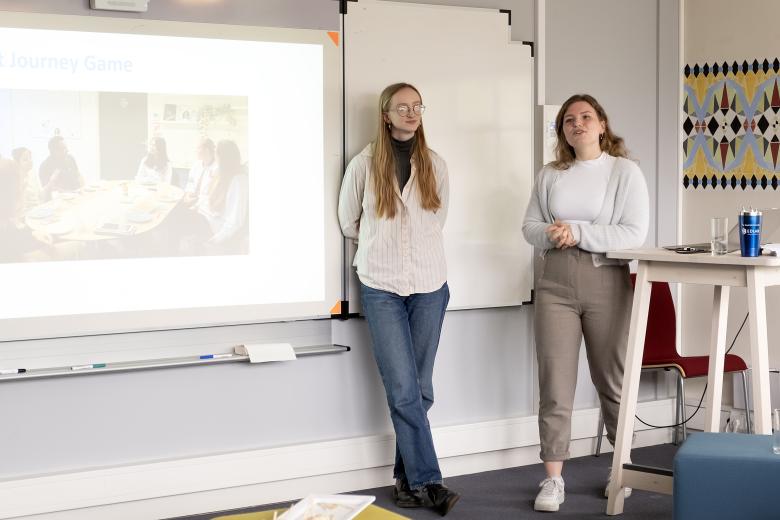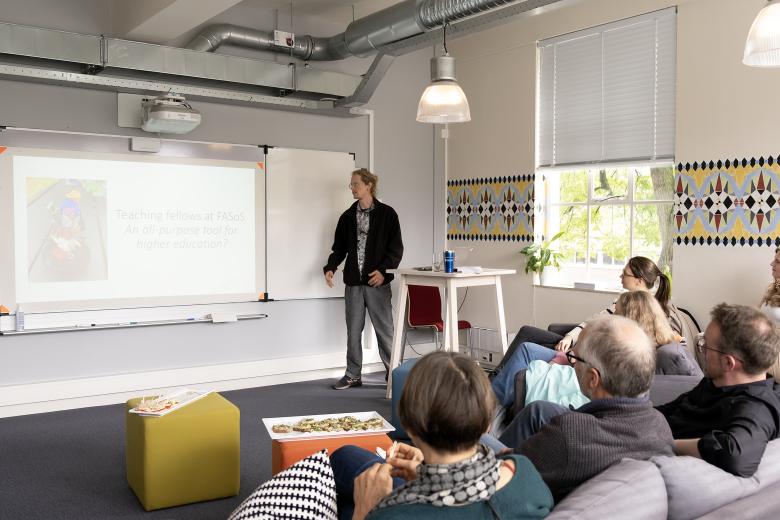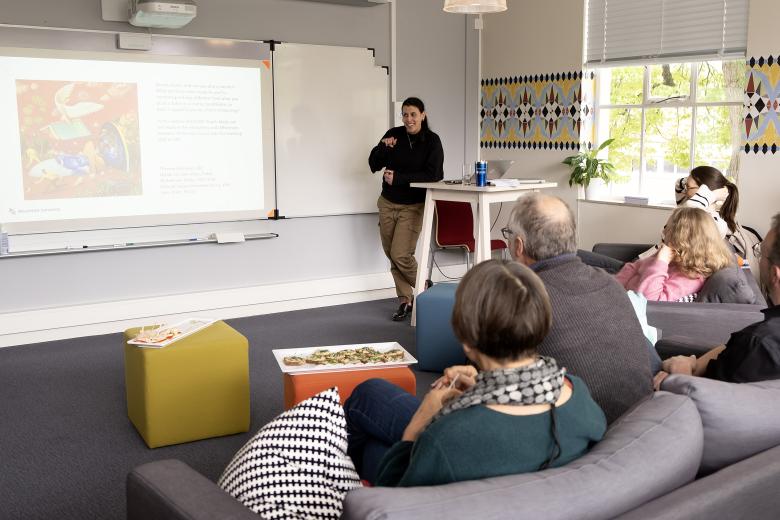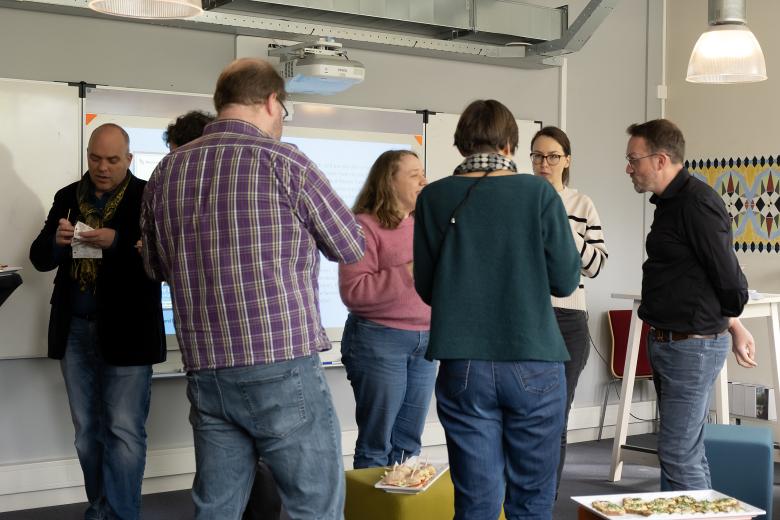Teach-Meet recap: Teaching and mentoring: balancing formality and personal connections
Teaching and mentoring roles often intersect, creating opportunities for academic development and personal interactions between students and tutors.
During our recent Teach-Meet on 17 April 2024, Therese Grohnert (SBE), Wilfred van Dellen (FSE/UCM), Nynke van den Akker (FHML), Levin Stein (FASoS), and Eliza de Sousa Fernandez Perna (FPN), presented their understanding of the intersection of mentoring and teaching and shared experiences from their respective faculties.
Anyone can be a mentor
While we often think of mentoring as a formal activity, such as academic advising or a coaching trajectory, mentoring can take many forms and happen more informally. Therese Grohert (SBE) has developed a grid where educational activities are positioned based on the number of students involved (individual or group) and whether the focus is to acquire knowledge or skills.
Each corner of the grid comes with its own formats and roles, but Therese places mentoring in the middle. "It's the most flexible teaching role I have experienced," she explained. As a seasoned academic advisor, she has gained experience in guiding students on their academic journey and helping them realise their career aspirations. As a teacher, she has seen the relevance of all kinds of formal learning activities. But the most valuable and critical may be that informal role of being a mentor to someone – a student, or a colleague. "Mentoring also has meaning for the mentor."
Everyone can be a mentor. Someone who listens, suggests, and sometimes opens doors. "It starts with something as small as a question after class, by simply being there for someone when they need it. I find it deeply meaningful to open my network to students and be there for them."
Helping students figure things out on their own
In his presentation, Wilfred van Dellen, the academic advising coordinator at UCM, reflected on the differences between teaching and advising. "When comparing the two roles, assessment usually comes to mind as the main distinction," he said. "As advisors, there is an interaction through which students improve themselves, but we don't usually assess students."
When looking under the surface, however, there is another difference. According to Wilfred, teaching focuses on transferring knowledge and skills, but advising adds another layer. There can be an effective outcome beyond learning a skill. An example of an effective outcome is learning how to enjoy riding a bike instead of merely learning how to ride it. In an advising situation, this could mean helping students discover their academic passions and career aspirations.
Therefore, while teaching and advising aim to develop students' knowledge and skills, advising focuses on personal growth, finding one's passion and learning to figure things out independently.
In advising, we don't want to simply transfer information about all their study programmes; we want to help students realise what they're passionate about and help them develop the skills to find the information they need.
Wilfred van Dellen, academic advising coordinator at UCMThe article continues below the photo gallery.
Photo gallery
Balancing formal requirements and interpersonal relationships
Nynke van den Akker, an experienced mentor and tutor at FHML, explained how formal mentoring requirements can be combined with interpersonal relationships. In her faculty, students receive medical training based on the Dutch national framework known as CanMEDS, which consists of seven core competencies that all medicine students need to master.
"While this is a solid foundation and an important goal, it's the interpersonal relationships we build with students that define mentoring for us," she said.
Because of the personal relationships involved in mentoring, her faculty introduced the concept of co-mentoring, where one mentor is assigned as a student's advisor and another as their examiner. "The two mentors are coupled, and together, they reflect on their student's portfolios, their personal growth and development of the seven core competencies," she explained.
With this system, mentors can fulfil formal mentoring requirements while building relationships and supporting students more personally.
Finding your mentoring style
"The role of a mentor can be highly rewarding but also quite confusing," said Levin Stein, a teaching fellow at FASoS.
Levin highlighted the complexity of blending formal and informal mentoring and the ever-changing nature of mentoring. "Each student has different needs, and they change over time. While some first-year students need more help adjusting to the university environment and struggle to find new friends or get used to a new city, other students do not require the same support."
"As mentors, we definitely encounter some dilemmas with the mentor programme," he added. "Should we force all university students to attend these meetings, including those who don't see the point? Having mandatory meetings increases attendance, but often leads to conversations that seem very forced." Helping students find their own ‘treasures in the jungle’ of their education means something else for every student – and mentor.
Finding your own style and approach to mentoring is essential to becoming a mentor. Over the years, Levis has tested different interactive teaching activities, such as conversational theatre, games, and mindfulness exercises, that helped him better understand his students. "When you start as a mentor, you need to be thrown into the water and find your own mentoring style."
Building trust before building connections
Eliza de Sousa Fernandez Perna, the mentoring programme coordinator at FPN, provided some advice for aspiring mentors. "Building a personal connection to a student takes time", she said, "but creating trust and confidence is key."
Eliza advises mentors to establish a safe and supportive environment before asking students to share and reflect on their experiences. Incorporating interactive activities such as improv to encourage participation, communication, and collaboration can help.
In her view, mentors should listen to students and empower them. "We should have a more strength-based approach. We should focus on what is strong rather than on what is wrong. Very often, students don't need advice, they just need a listening ear. Building connections takes time and effort, but when the magic finally happens, that's such an honour and a pleasure for me."
People sometimes ask me, 'Don't you get tired of these mentor meetings?' But it is actually the highlight of my day. Interacting with your students, reading and listening to what they have to say is what matters.
Eliza de Sousa Fernandez Perna, mentoring programme coordinator at FPNBy Lia Krizova, EDLAB Student Assistant, Bachelor Student FASoS
Also read
-
Warming up the classroom: music, mindfulness, and reflection in PBL
Athletes must warm up and concentrate before any performance. Why, then, do we expect our students to instantly become active when they enter a Problem-Based Learning (PBL) session?

-
Professional Development Exchange Hub: check the updated list of activities from Sept 25-Jan 26
Want to find out more about the latest educational developments while learning from colleagues from other universities? Then this is your chance to participate in workshops and courses from different universities in the Netherlands.
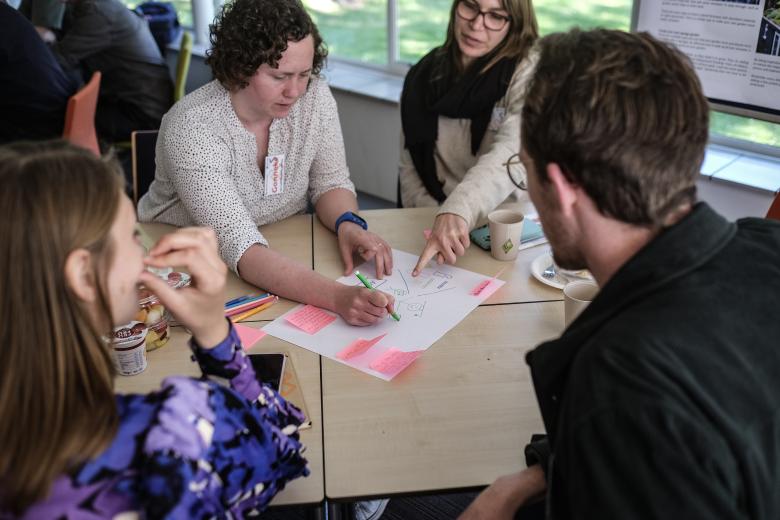
-
New video series: Education research in collaboration
EDLAB has released a new three-part video series, Education research in collaboration, highlighting how researchers and teaching staff work together to strengthen education through evidence-based innovation.
